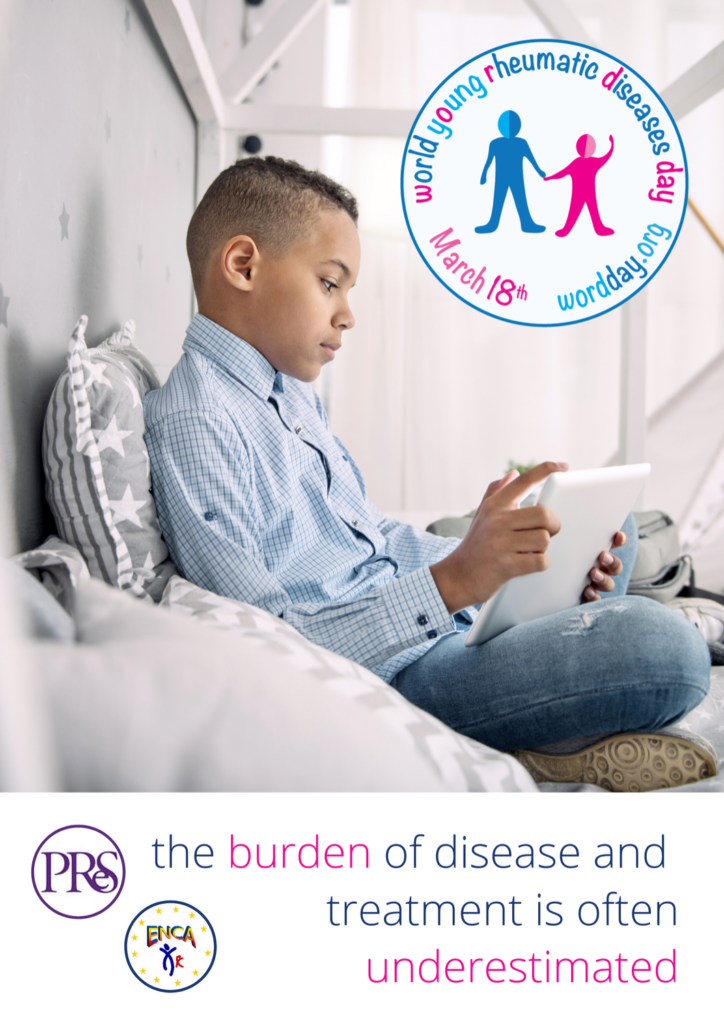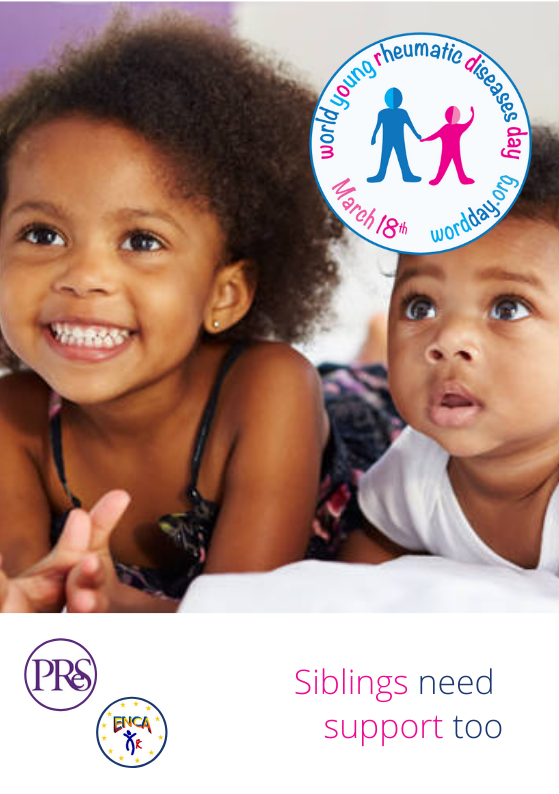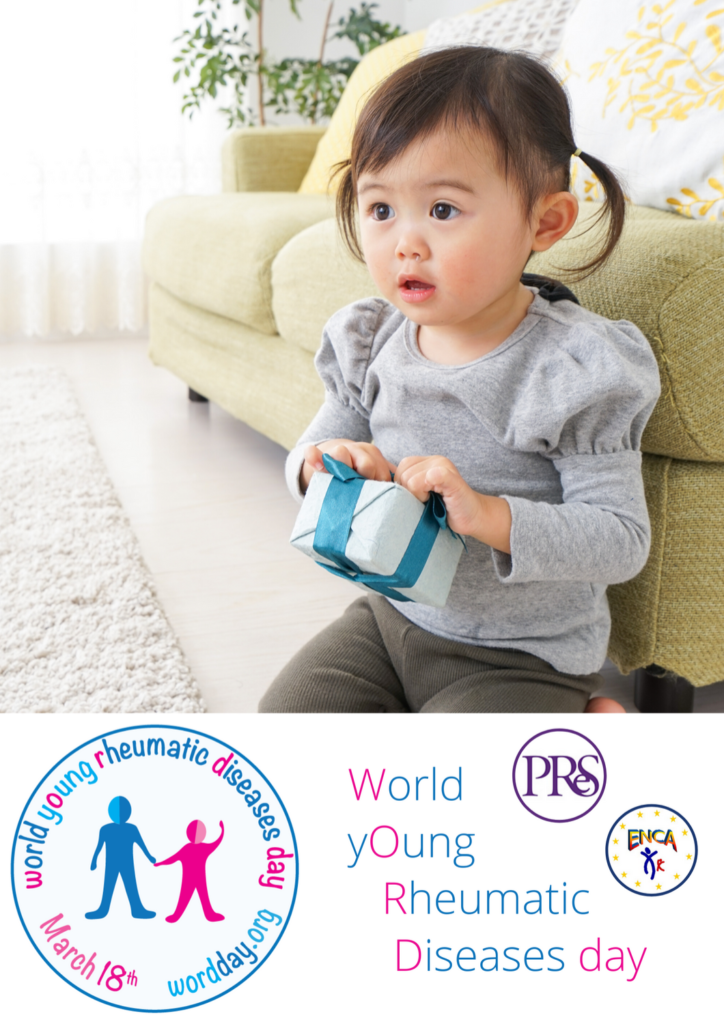The countdown is on until WORD Day 2020 – the second international awareness day for children and young people living with rheumatic diseases, taking place on Wednesday 18 March 2020. Now is the time to get involved!
WOrld young Rheumatic Diseases Day (WORD Day) is an annual international awareness day that takes place on the 18th March each year.
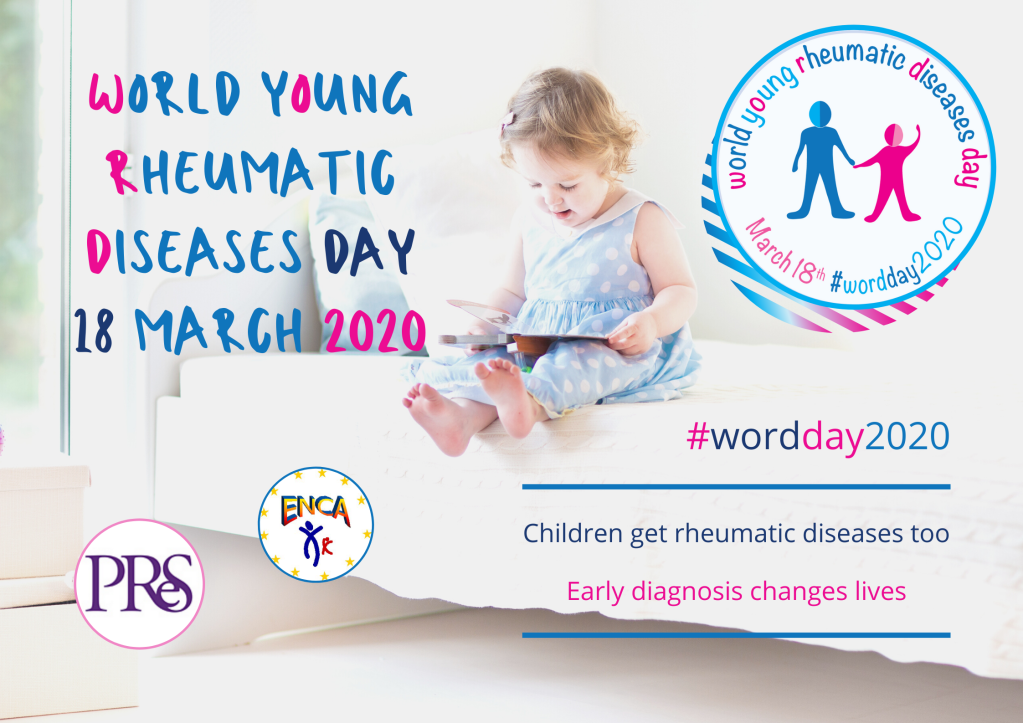
The aim of WORD Day
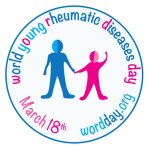
The aim of WORD Day is to first raise awareness of all the different kinds of rheumatic diseases in children and young people, while informing children and young people, parents, healthcare professionals, teachers, and the general public about the importance of early diagnosis, and a quick referral to specialist paediatric rheumatologists. It is anticipated that awareness will have a ripple effect on all levels of practitioners who come in contact with these children and young people, improving the level of treatment they receive and their prognosis worldwide.
About paediatric rheumatic diseases
Paediatric or juvenile rheumatic diseases are a group of long-term, chronic inflammatory conditions of the musculoskeletal system. They are often unknown, not only to the general public, but even to some healthcare professionals. These conditions range from the relatively common to the extremely rare, including: Juvenile Idiopathic Arthritis (JIA), of which there are several subtypes; Juvenile Systemic Lupus Erythematosus (jSLE); Juvenile Dermatomyositis (JDM); Scleroderma; autoinflammatory diseases such as Familial Mediterranean Fever (FMF); Rheumatic fever; Kawasaki disease, fibromyalgia and many more. Many of these illnesses are chronic, which means that they persist for many years or indefinitely, and need to be managed appropriately to minimise their effect on quality of life – now, and into the future.
Rheumatic diseases can affect children and young people in many ways, as well as impacting the entire family too. Some widespread disorders, such as jSLE and the systemic subtype of JIA, can severely impair children’s overall health and wellbeing. jSLE, for example, can cause damage to internal organs such as the kidneys and heart. You can learn more about paediatric rheumatic diseases here.
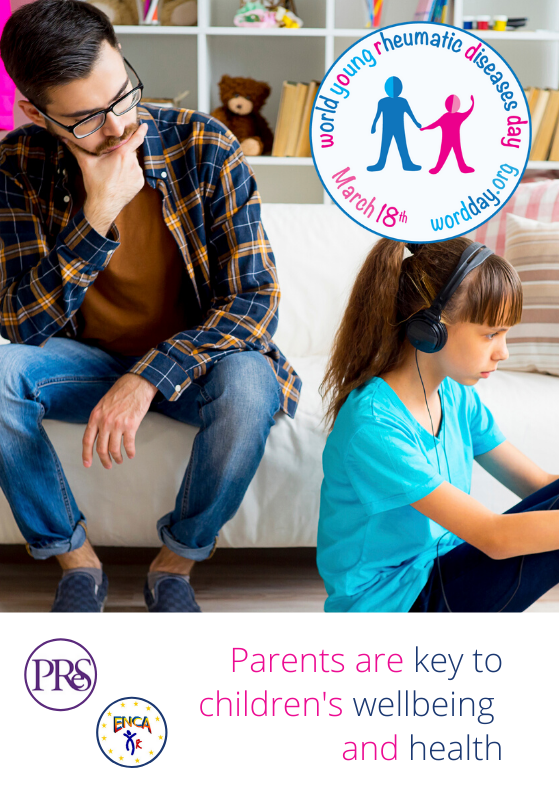
However, the general lack of awareness can cause a delay before a correct diagnosis is made, and consequently, before appropriate treatment can be given. Early diagnosis and treatment are so important, which is why the Paediatric Rheumatology European Society (PReS) of healthcare professionals and the European Network for Children with Arthritis and Autoinflammatory Diseases (ENCA) launched WORD Day in 2019 to reach out, across the globe, to spread the WORD that children and young people get rheumatic diseases too. We’re hoping WORD Day 2020 will be even bigger and better than the inaugural awareness day in 2019!
Get involved with WORD Day 2020
So, how are you going to celebrate WORD Day? No activity is too small, or too crazy! If you’re wanting inspiration, look no further than the WORD Day 2019 Impact Report. Even a conversation with somebody on the train is helping to raise awareness. Here are some examples to get you going:
- Contact your local paediatric rheumatology centre/team and see if you can celebrate the day together;
- Contact your local hospital to see if you can have a stall in the entrance area… see if you can include the WORD Day posters on television displays, and see whether you can get onto the hospital radio;
- Contact your local and national media (including newspapers, radio, and television stations), asking them for their help to raise awareness;
- Contact local schools, colleges and universities to see if you can go in to give an assembly, presentation or activity with students and staff about rheumatic diseases in children and young people;
- Contact your local museum to see if you can host a stall in the entrance, or at least leave some leaflets on the information desk;
- Write a blog, or share a video on life with a rheumatic disease (this could be young people and/or parents and other family members);
- Organise an information and training event around WORD Day and invite trainee doctors, nurses, physiotherapists and occupational therapists to help them better understand rheumatic diseases, as early intervention is the key to better outcomes for children and young people;
- Organise a coffee morning in work to raise awareness over a cuppa and some cake!
You can also get involved in the WORD Day social media challenge – the #buttonchallenge2020.
We often take the small things in life for granted. Things like tying shoelaces, opening a door handle, or even buttoning up a shirt. The #buttonchallenge2020 aims to shed light on the day-to-day struggles that children and young people with rheumatic diseases face on a day-to-day basis. Put yourself in the shoes of a child with a rheumatic disease by taking part. All you need to do is post a video of yourself buttoning up your shirt with gloves on and don’t forget to nominate three friends to do the same. Don’t forget to include the hashtags #buttonchallenge2020 and #WORDDay2020.
Here’s last year’s video for some inspiration:
Connect on social media
Help to create some noise on social media, by following and engaging with WORD Day on Facebook and Twitter.
Share your story
An image speaks a thousand words. Sharing your story is a powerful way of giving children and young people with rheumatic diseases a voice. If you want to remain anonymous, that’s fine, just make sure to capture images without showing your face or things which may identify you. You can show medical aspects of living with your disease, what inspires you or simply your everyday life – whatever you feel comfortable with. Feel free to be as creative as you want!
Here are some tips for filming your story:
- Format: Horizontal frame for filming, on smartphone or other video recording device;
- Privacy: You confirm by providing WORD Day with your film, you are authorising them to use it during the WORD Day 2020 campaign on social media;
- Sending files: Upload your file to WeTransfer and send the link to contribute@wordday.org;
- Other ways to contribute: If you don’t want to make a video but still want to share your story in writing, then please email: contribute@wordday.org.
In the comments box or email, remember to tell the WORD Day team your:
- Name or nickname;
- Country;
- Age;
- Diagnosis.
If you want to include the below information, then that would be great:
- The time between your first symptoms and diagnosis;
- If early intervention (e.g. quick access to treatment) has made a difference to your life;
- If you think early intervention would have made a difference to your life.
Download some resources
The WORD Day Organising Committee have prepared a variety of resources for people and organisations to use. Download them, be creative, and get the message out there!
- WORD Day Generic Logo
- WORD Day 2020 Logo
- WORD Day 2020 Social Media Profile Frame
- WORD Day 2020 Posters
- WORD Day 2020 Brochure
- WORD Day 2020 Magazine
- WORD Day 2020 Slide Deck
- WORD Day 2020 Speech Bubble
- Kipo – A book for children with juvenile arthritis
- Article published in The Lancet Child & Adolescent Health
Help to spread the WORD that children and young people get rheumatic diseases too!
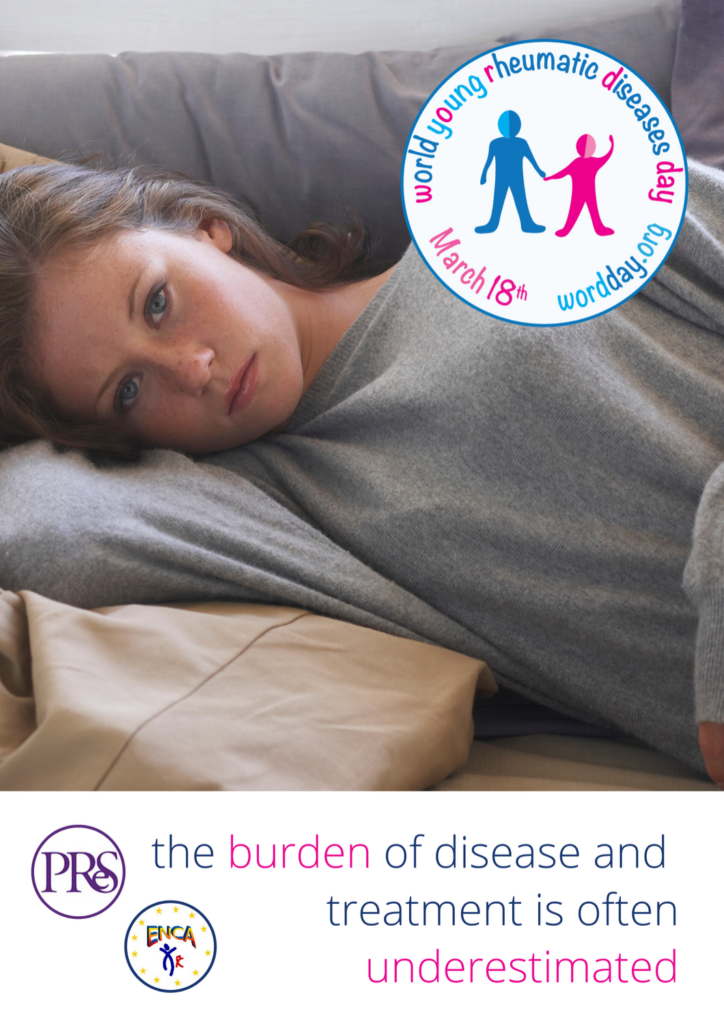
If you would like to get involved in WORD Day, or if you want any more information, please contact the WORD Day Organising Committee by emailing: info@wordday.org.


